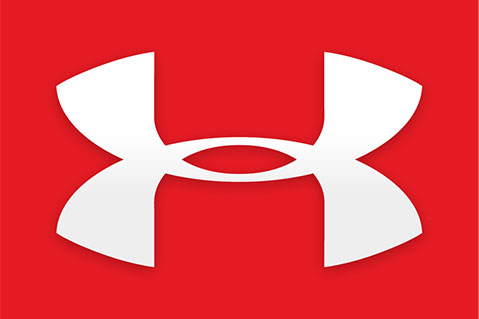Product Hub April 01, 2016
Why Is Under Armour Turning Down Millions Of Dollars?
In thousands of emails and sales calls around the country, the customer lobs an inevitable question: “Do you have Under Armour?” The answer is often “No.” The brand is a precious metal, one constantly in demand but rarely supplied. On ESP last year it was the seventh-most searched apparel term – and the only Top 20 search by brand name.
>>Back to the Big Book of Questions

“It’s very difficult to get an account with Under Armour now, especially as a small dealer,” says Mary Claghorn, manager of the team and corporate customizing department at Sports Unlimited. The online sporting goods seller was at one point one of the largest independent dealers of Under Armour in the U.S., and the relationship with the apparel brand was strong enough to grandfather them in as Sports Unlimited expanded its corporate apparel work.
There are very few dealers of decorated UA corporate apparel in the U.S. Most don’t belong to the traditional roster of large suppliers, but rather comprise a small gaggle of team dealers, decorators and smaller distributors. Both alphabroder (asi/34063) and Bodek and Rhodes (asi/40788) – the latter by way of their merger – carry the brand, but only in a limited capacity with the expectation that availability will be expanded throughout the year.
So why the hesitation from Under Armour? Strictly from a requirement standpoint, the apparel company mandates that any reseller – from full-line sporting goods stores to decorators and promotional product dealers – has a brick-and-mortar storefront. In addition, Under Armour will sell its wares directly to organizations or companies for a number of uses – corporate events, company uniforms, sports and activity clubs (collegiate clubs, Tough Mudders) and more. Any group that wants to purchase from Under Armour must register and submit a request, which the company reviews within 4-6 weeks. On the company’s All Access page, it states that the company “reserves the right to deny any sale based on our current Brand Initiatives.”
Brand is paramount to UA’s success. Even as Founder Kevin Plank pioneered the modern notion of performance wear 20 years ago (polyester, moisture wicking), mega-companies like Nike and adidas wasted little time diverting their gargantuan resources to the category. And still, Under Armour has grown to become the second largest sports apparel brand with over $3 billion in revenue in 2014. Its marketing strategy has been hailed as paramount to its brilliant rise; as just one recent example, the company won Ad Age’s Marketer of the Year award two years ago.
So not surprisingly, brand is very much behind UA’s limited presence in this industry. “They have that tagline, Protect This House. I think they really take it to heart,” says Neil Van Malderghem, senior account executive of Chesapeake Business Solutions Inc., which has sold UA for over five years. Van Malderghem says Under Armour insists their product is never discounted, and while the prices of its top-line items are in line with other leading brand names, the company doesn’t offer even mid-level items that are more affordable.
Also, while UA is not fanatical about where logos are placed and how they are applied, they have forbid logos for tobacco and other drug companies. (Alcohol is also banned, though corporate dealers have gotten the company to sign off on buyers like beer breweries.) UA product also must only be decorated by company-approved decorators.
It’s clear that to be an Under Armour reseller is to be an exceptional steward of the company’s brand. “They trust us that we’re going to do it according to their guidelines,” says John Reglein, owner and president of Graphic Edge, which does major UA team sales but also offers corporate apparel. “It’s almost like they’re doing it because we’re just an extension of their wants.”
It’s also possible that UA’s tepid dalliance is just as much about economics as branding. Van Malderghem recalls a past conversation he had with a UA executive about selling more in the industry. “‘Why would we want a distributor out there selling products decorated for less money than Dick’s, which spends $10 million a year with us?’” Van Malderghem recalls him saying. “I agreed with him, really.”
Perhaps things can change. According to distributors, UA’s spotty inventory in the past has improved. If UA decides to expand its presence in the corporate market, it will find consistent customer demand and a ripe growth opportunity that can be tapped into at any time. Sports Unlimited does strong corporate business with Under Armour products – everything from polos and quarter-zips to backpacks and hoodies. Chesapeake’s clientele for Under Armour includes “pretty much everyone,” from corporations to the federal and state government. The brand cache is strong, and people are willing to pay the price. “In the corporate world,” Claghorn says, “if what they’re looking for is Under Armour, then Nike is not good enough.”

Product Hub
Find the latest in quality products, must-know trends and fresh ideas for upcoming end-buyer campaigns.
